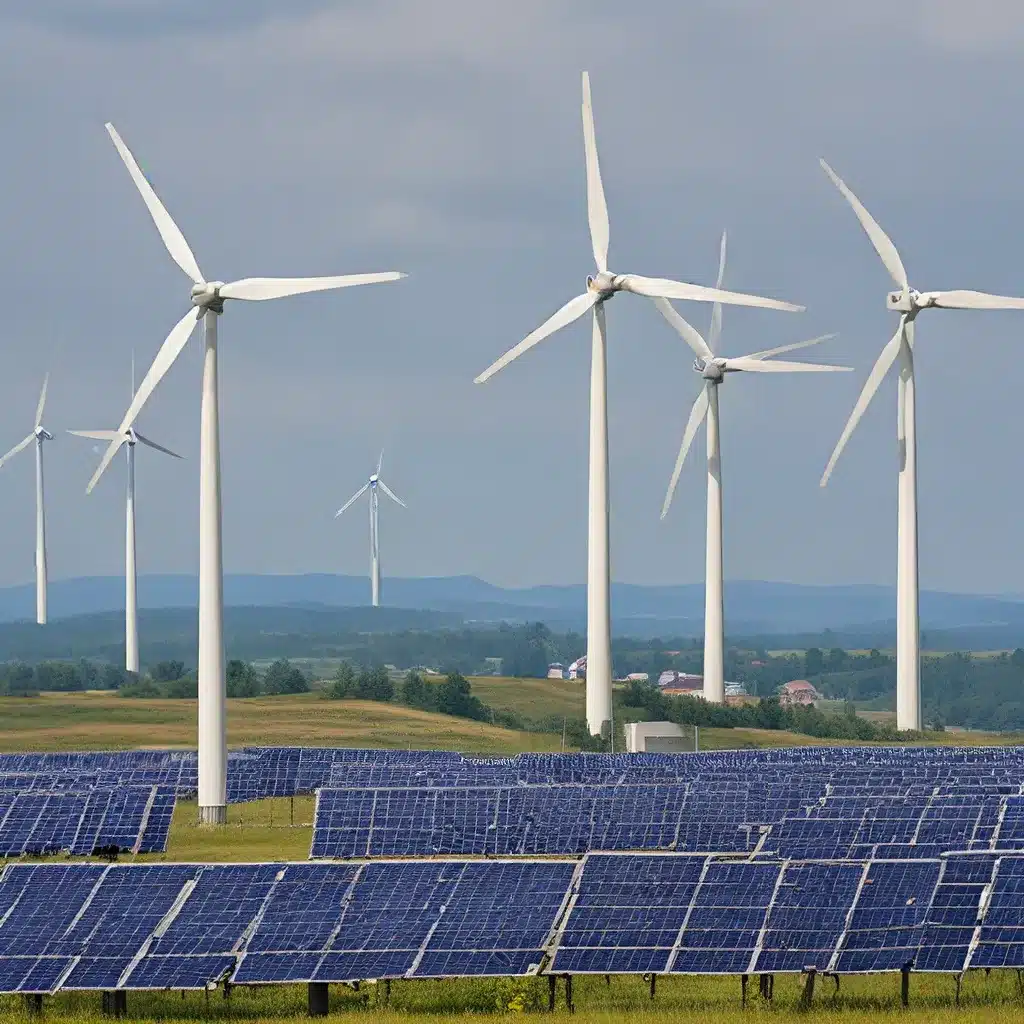
As we navigate the ever-evolving world of energy, it’s becoming increasingly clear that the path to a sustainable future lies in embracing renewable solutions. But the journey isn’t always as straightforward as we’d hope. In fact, one of the biggest hurdles we face is navigating the complex web of policies and regulations that can either propel or hinder the widespread adoption of renewable energy.
Untangling the Policy Puzzle
When it comes to renewable energy integration, the policy landscape is like a tangled web of red tape and bureaucratic barriers. It’s a realm where the decisions made in boardrooms and legislative halls can have a profound impact on the progress of clean energy technologies. And let me tell you, wading through this maze is no easy feat.
Take, for instance, the case of bioenergy. This renewable powerhouse currently accounts for a staggering two-thirds of all renewable energy consumption worldwide, including renewable electricity and renewables for heating, cooling, and transport. That’s a pretty impressive feat, right? But here’s the catch – half of this consumption is in the form of traditional, often inefficient or unsustainable cooking and heating methods, mostly in developing countries.
According to IRENA’s report, while modern applications of bioenergy can provide a wealth of benefits, from electricity generation to transportation fuels, they can also have negative environmental, social, and economic impacts, such as biodiversity loss, food insecurity, and deforestation. To harness the power of bioenergy without succumbing to these pitfalls, we need a robust policy framework that is tailored to the unique needs and challenges of each local context.
The Balancing Act of Energy Security and Decarbonization
But bioenergy is just one piece of the puzzle. As we look at the broader energy landscape, we see a delicate balancing act playing out between energy security and long-term decarbonization. The contemporary global energy scene is undergoing a remarkable transformation, with renewable sources like wind and solar power becoming increasingly cost-effective compared to fossil fuels.
However, recent events like the COVID-19 pandemic and the conflict in Ukraine have temporarily refocused attention on traditional energy sources like oil and gas. This raises a critical question: How do we maintain energy security and economic progress in the short term while simultaneously driving forward the transition to a sustainable energy future?
As the Policy Center for the New South points out, an interconnected and integrated energy system is more crucial than ever, particularly in the Southern Mediterranean region. Regional integration can provide a pathway to overcoming the costly divisions created by geographical distances, inadequate infrastructure, and ineffective policies.
But achieving this level of integration is no easy task. It requires countries to cooperate on trade, investment, infrastructure, and financial policies – a delicate dance that often gets tripped up by conflicting priorities and entrenched national interests.
The Push for Renewable Energy Expansion
Despite these challenges, there is a growing global push to expand the use of renewable energy sources. In fact, research has shown that renewable energy has become increasingly cost-effective compared to fossil fuels, making it an attractive option for both energy security and decarbonization efforts.
But the road to widespread renewable energy integration is paved with a myriad of policy barriers. Take, for example, the case of the North African electricity interconnections. Despite some efforts to promote regional cooperation, the fragmented electricity markets and monopolistic state utilities have resulted in negligible electricity exchanges between the five North African countries.
This is where the importance of complementary policies and institutions comes into play. Effective regional integration requires not just physical infrastructure, but also a harmonized regulatory framework and a level playing field for all players. Without these critical elements, the potential benefits of renewable energy integration may remain largely untapped.
Unlocking the Power of Hydrogen
But the renewable energy revolution isn’t limited to just solar and wind power. As we look to the future, hydrogen is emerging as a promising player on the global energy stage. The Southern Mediterranean region, in particular, is showing promising signs of hydrogen development, with initiatives underway in countries like Egypt and Morocco.
However, the road to a cost-competitive hydrogen industry is not without its challenges. Firewinder, a leading provider of renewable energy solutions, highlights the importance of continued investment in research and development, as well as the need for infrastructure development and regulatory frameworks to support the growth of this burgeoning industry.
Moreover, the European Union’s interest in the hydrogen market as a potential export destination could intensify the competition in the region, underscoring the need for regional cooperation and harmonized policies to ensure a fair and equitable distribution of benefits.
Embracing the Collaborative Approach
Ultimately, the path to successful renewable energy integration is paved with a collaborative spirit and a willingness to overcome the policy barriers that stand in our way. It’s a journey that requires sustained multi-party collaboration, bolstered by political commitment and good governance.
As we navigate this complex landscape, it’s crucial to remember that there is no one-size-fits-all solution. Each region, each country, and each community has its own unique challenges and opportunities. But by working together, sharing expertise, and fostering a collective willingness to cooperate, we can unlock the true potential of renewable energy and pave the way for a more sustainable future.
So, let’s roll up our sleeves, put our heads together, and tackle these policy challenges head-on. After all, the rewards of a clean, reliable, and accessible energy system are well worth the effort. Who’s with me?

